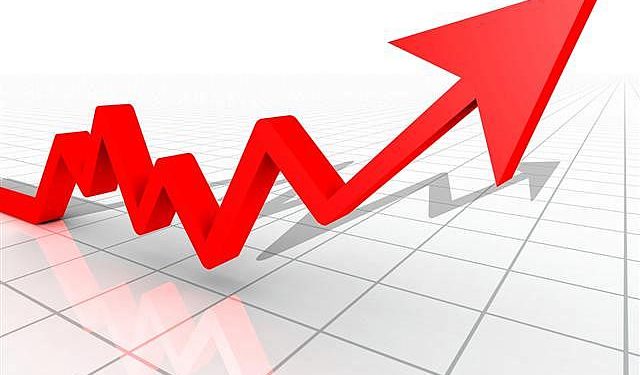In one year, the global COVID pandemic has put an end to a quarter-century of steady economic progress in Africa, disrupted value chains, and exacerbated inequality and poverty to unprecedented levels. The result shows that the entire world is at stake, as one of the global economy’s future growth generators may be lost. The Covid-19 pandemic has taught us that disasters that we think are too far from us, can no longer be treated as such. What occurs in one place can have an impact on others all around the world, also known as the butterfly effect. This is the reason why it is critical to address the pandemic’s effects and legacy in Africa.
Despite the fact that Africa has had fewer COVID-19 cases and death cases than the other regions of the world, the continent’s influence on the pandemic might be more long-lasting, deep, and disruptive for the whole globe. In only one year, the epidemic has put a quarter-century of steady economic expansion on hold and exacerbated inequality and poverty to unprecedented levels. However, it is not just Africa that is at risk of missing out on the full benefits of COVID-19, one of the world economy’s future growth engines might also be lost.
Africa possesses everything necessary to overcome the current crisis and lead the world into a new cycle of sustainable development and growth: energetic and imaginative young people, a plethora of natural resources capable of supplying a local industrial base, and a massive continental integration project. However, Africa lacks the resources to recover from such a massive and unanticipated calamity.
One of the sectors that have the potential to overcome the current economic challenges is the financial sector, which did not appear to be vulnerable to the pandemic, since the industry is fully digitized. The pandemic increased the demand for the industries such as forex or crypto and countries such as South Africa and Nigeria benefiting from it. One of the main reasons for that is the friendly environment for the brokerage companies to operate on the market due to the less restrictive regulations than in Europe, and many of them such as XM Forex broker or crypto brokerage companies gained momentum and the demand for them appeared to be massive. One of the best solutions for other African countries would be to create an environment for the financial industries and the companies that are providing proper services, that would benefit all the stakeholders since it makes the capital flow in the country, especially the USD, which reserve is crucial for the economic development.
While the international monetary fund projects that African nations will require an extra $285 billion in funding by 2025, there is no recovery strategy or mechanism in place to ensure that these funds are available. While other areas are showing indications of quick economic recovery, Africa’s incapacity to confront the epidemic with the same tools might create an economic and social disaster that deprives its youth of opportunities. Soon After the Epidemic began, international cooperation began to bear fruit. The G20 agreed to defer debt service payments for the poorest nations in exchange for special financial support from the IMF, the World Bank, and other donors, notably Europe.
However, the structures that have bolstered international solidarity for decades are approaching their breaking point. Huge differences in vaccination access have weakened them in the near run. Major economic divergences have also weakened them and no emergency solution appears to be capable of halting them. This is why a new framework is required, an ambitious and daring New Deal. Access to Covid vaccination must be the first priority of this endeavor. Hundreds of millions of doses will be supplied to Africa in the months ahead thanks to COVAX. Pre-ordered vaccination doses are transferred through multilateral channels, with the safety of healthcare professionals being the first concern.
However, this is insufficient. Vaccine rollout is currently the most significant economic policy in the world: the benefits are estimated in trillions of dollars, while the costs are estimated in billions. In the near run, it is the most profitable investment. In order to meet Africa’s vaccine coverage objective of 60-70 percent by 2020, we must deploy novel financing tools to raise funding. Furthermore, as stated in the Rome Declaration of the Global Health Summit on May 21, providing not just licenses but also knowledge to developing nation vaccine makers is critical to combat future pandemics.
Africa must be permitted to make vaccines utilizing messenger RNA technology pending the resolution of an intellectual property accord now being negotiated at the World Trade Organization. Such manufacturing collaborations will be financed and moved forwards in the next month, thanks to the momentum of the May 18 Paris Conference. Africa needs a boost of confidence. The EU is able to finalize an agreement on a fresh $650 billion allocation, including $33 billion going to African countries.
Firstly, other nations must agree to allocate a portion of their SDR allocations to Africa. These changes in the direction of resources would allow an initial threshold of 100USD billion to be free for Africa’s development.
Secondly, African institutions should become involved in the usage of SDRs in order to aid the full recovery of the continent and make progress towards the 2030 Sustainable Development Goals. This may open the way for the re-organization of the international finances in the region that will directly increase the value of the institutions operating on the African continent.
Finally, we must emphasize that Africa’s most valuable resource is its energy for entrepreneurship. For African women and young people, the continent’s very tiny and small businesses, SMEs are the lifelines for the future, yet the private sector is beholden to informality and under-financing. The focus should be on enhancing African entrepreneurship access to capital by focusing on the most critical stages of their businesses, meaning startups.
See Also:




